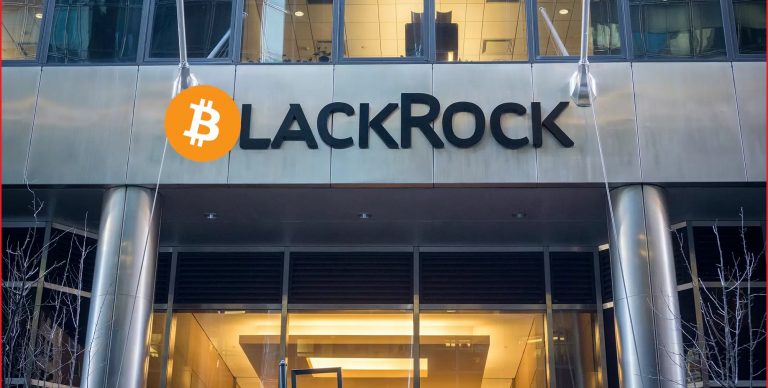
BlackRock’s iShares Bitcoin Trust (IBIT) has achieved a historic milestone, becoming the fastest exchange-traded fund (ETF) to surpass $70 billion in assets under management (AUM), reaching this mark in just 341 trading days. This is approximately five times faster than the previous record holder, SPDR Gold Shares (GLD), which took 1,691 days to hit the same threshold. Launched on January 11, 2024, IBIT has seen unprecedented growth, driven by strong institutional and retail investor interest, with $71.9 billion in AUM and holdings of 661,457 Bitcoin (BTC) as of June 6, 2025.
This makes BlackRock the largest institutional Bitcoin holder, surpassing Binance (629,190 BTC) and MicroStrategy (582,000 BTC). The ETF’s success is attributed to Bitcoin’s rising price, which hit $110,000, and its growing acceptance as an inflation hedge and alternative store of value. IBIT has posted $48.7 billion in net inflows since launch, outpacing other spot Bitcoin ETFs, though it saw a $430.8 million outflow on May 30, ending a 31-day inflow streak. Analysts, including Bloomberg’s Eric Balchunas, project BlackRock could overtake Satoshi Nakamoto’s estimated 1.1 million BTC holdings by mid-2026.
BlackRock’s iShares Bitcoin Trust (IBIT) hitting $70 billion in assets under management (AUM) in just 341 trading days signals strong institutional acceptance of Bitcoin. As the largest institutional Bitcoin holder (661,457 BTC), BlackRock’s involvement validates cryptocurrency as a legitimate asset class, encouraging other financial giants to enter the space. The ETF’s accessibility through traditional brokerage accounts lowers barriers for retail investors, driving broader participation.
Register for Tekedia Mini-MBA edition 19 (Feb 9 – May 2, 2026).
Register for Tekedia AI in Business Masterclass.
Join Tekedia Capital Syndicate and co-invest in great global startups.
Register for Tekedia AI Lab.
This has contributed to Bitcoin’s price surge to $110,000, reinforcing its role as an inflation hedge and alternative store of value. With IBIT’s massive AUM, BlackRock wields significant influence over Bitcoin’s market dynamics. Its buying or selling activity could amplify price volatility, especially given its holdings surpass those of Binance and MicroStrategy. IBIT’s success may push regulators to clarify cryptocurrency frameworks, balancing innovation with investor protection.
The SEC’s approval of spot Bitcoin ETFs in January 2024 already marked a shift, and continued growth could lead to more crypto-based financial products. IBIT’s dominance ($48.7 billion in net inflows) intensifies competition with other spot Bitcoin ETFs, like Fidelity’s FBTC and Grayscale’s GBTC. This could drive innovation in fee structures (IBIT’s 0.25% fee) and product offerings. The U.S. spot Bitcoin ETF market, with $110 billion in AUM across 11 funds, sets a benchmark for other countries. Nations like Canada and Australia may accelerate their own crypto ETF approvals to capture similar capital flows.
With BlackRock holding over 3% of Bitcoin’s 21 million total supply, institutional accumulation could exacerbate scarcity, especially as the halving cycle (next in 2028) reduces new issuance. This may drive prices higher but risks centralizing ownership. IBIT’s reliance on Coinbase for custody raises questions about counterparty risk. A security breach or operational failure could impact investor confidence in Bitcoin ETFs.
Bitcoin’s appeal as “digital gold” grows amid global inflation concerns and fiat currency devaluation. IBIT’s growth reflects investors seeking alternatives to traditional assets like bonds or gold (GLD took five times longer to reach $70B). As U.S.-based ETFs dominate Bitcoin holdings, it could shift crypto’s power center from decentralized networks to Wall Street, potentially clashing with Bitcoin’s original ethos of financial sovereignty.
Institutional investors and high-net-worth individuals benefit from IBIT’s regulated structure, tax advantages (e.g., in retirement accounts), and ease of access. BlackRock’s scale allows it to negotiate lower fees and secure large Bitcoin allocations. Small retail investors holding Bitcoin directly on exchanges or wallets face higher risks (hacks, lost keys) and miss out on ETF-related benefits like liquidity and regulatory oversight. They may also struggle to compete with institutional buying power driving prices up.
Wall Street giants like BlackRock profit from management fees and market influence. IBIT’s success strengthens TradFi’s grip on crypto, aligning it with existing financial systems. Bitcoin purists, who value decentralization and censorship resistance, see ETFs as a betrayal of Satoshi Nakamoto’s vision. Institutional custody and regulatory oversight undermine the “be your own bank” ethos, centralizing control in entities like BlackRock and Coinbase.
U.S. investors and firms dominate the Bitcoin ETF market, with BlackRock leading the charge. Developed markets with robust financial infrastructure attract the bulk of capital flows. Emerging markets with restrictive crypto regulations or limited access to ETFs lag behind. Investors in these regions face higher costs and risks trading on unregulated exchanges, widening the wealth gap.
Early Bitcoin adopters and ETF investors reap massive gains from the price rally to $110,000. BlackRock’s projected overtake of Satoshi’s 1.1 million BTC by mid-2026 underscores the wealth concentration among large holders. Those without Bitcoin exposure, including skeptics or late entrants, miss out on the rally.
As institutional accumulation accelerates, entry costs rise, pricing out lower-income investors. IBIT’s meteoric rise is a double-edged sword: it cements Bitcoin’s financial relevance but risks alienating its decentralized roots, creating winners in Wall Street and losers among those left behind in the crypto revolution.



